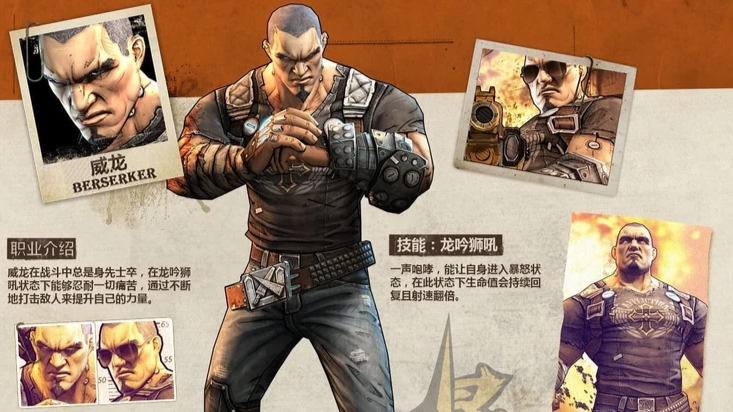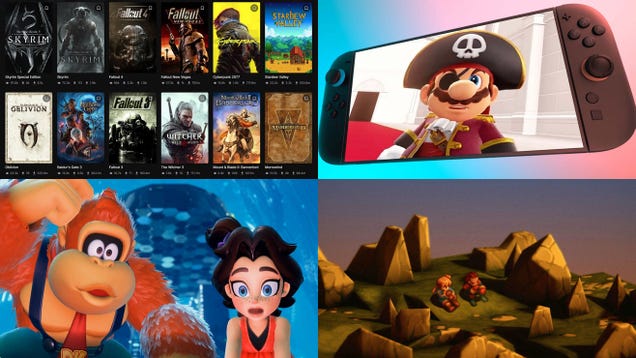
At first glance, Two Rock, Arizona is merely a backwater town occupied by little more than tumbleweed and a few rows of houses. But very little is as it first appears, and all it takes to reveal As Dusk Falls’ many layers of storytelling depth is one small, decades-spanning tragedy. And it’s all about the story, since this is a choose-your-own-adventure-style graphic novel that cleverly pulls ideas from games like Telltale’s The Walking Dead series and 13 Sentinels: Aegis Rim. Each member of this voice-acting cast of unique and interesting characters has their own, often conflicting emotional stakes that accelerate the story in seemingly hundreds of logical and intelligently connected directions. Through the powerful and often far-reaching consequences of your own actions, this small town is gradually unveiled as a powder keg full of secrets, vices, and familial bonds that run far deeper than any outsider is initially led to expect.
This story begins with a heist carried out by a trio of brothers who, while searching for a place to lay low, collide with another family at the auspicious Desert Dream Motel. You initially alternate between the soft-spoken youngest brother, Jay, and Vince, a married father who can either care more about his troubled professional history or his family – depending on how you choose to play him. The voice acting is several steps above competent, featuring familiar names like Deus Ex’s Elias Toufexis and Returnal’s Jane Perry, just to name a few, and each character is played with believable conviction. For a game with this much melodrama, very little of it is played awkwardly, and that’s a huge positive.
The orange-hued art style certainly harkens back to shows like Breaking Bad, and the painterly finish is reminiscent of Disco Elysium as well. Some might take umbrage with this art style, but arguably, that’s what makes it stand out so well against other story-focused games, where the uncanny valley might make it a little too difficult to take certain scenes seriously. Once I got used to it, my imagination began to fill in the gaps between frames. As a result, I remembered many of the scenes in much richer detail than they actually appeared.
The moral tug-of-war is constant here, and you may just want to play the six-hour campaign several times.
These characters and their motivations can vary wildly depending on the order of actions you choose, such as confronting a mugger with a shotgun or attempting to reason with him. Everybody has their own view on Two Rock and its history, and if the story begins to paint one non-player character as a villain, things rarely stay that way for long. The moral tug-of-war is constant here, and you may just want to play the six-hour campaign several times; not because you need to, but because taking different paths and exploring these wildly different stories is so satisfying.
It’s great that As Dusk Falls points out which decisions are the big ones with a giant sign overhead, but don’t just assume the most obvious choice will always have the desired outcome. These cascading events are a constant source of twists and turns, meaning things can spin out of control in ways you usually didn’t intend, and practically none of the core cast is safe. It’s also easy to jump back to a decision that didn’t go your way if you’re picky about how you want a playthrough to go.
The likelihood you’ll manage to see everything meaningful on the first run is slim to zero, and the availability of an up to eight-player mode where everyone gets to vote on decisions make As Dusk Falls much more of a party game than any other visual novel to date. People can even vote using their phones. In the right circumstances and with the right group of people, it could be one of the most replayable visual novels to date.
It’s the storyline that’s intense here, not gameplay.
Fans of TV crime dramas would feel right at home in Two Rock, and the pace is so leisurely that even if your friends and family members aren’t typically into video games, this could be a great starting point for them. It’s the storyline that’s intense here, not gameplay; interaction is largely dominated by quick-time events and dialogue choices with a countdown timer that’s usually pretty generous. The meat of this story campaign is in exploring the plethora of story choices and then watching their often clever and sometimes tragic outcomes woven together with a story so well-written that it might as well be on AMC.
Since no time is wasted making you search for puzzle clues or awkwardly stumble around in a 3D environment, As Dusk Falls leaves space for a noticeably wider number of meaningful decisions than in any Telltale game, and they don’t just feel like they’re giving the mere illusion of choice. Some actions, such as talking to a dog versus throwing a stick to ward the dog away, resulted in two vastly different outcomes that temporarily changed the shape of the story. In another instance, a series of events led to one character’s death early on, whereas making a totally different array of choices led to a completely different outcome near the end of the story. Many of these decisions seem innocent or meaningless at first, but they do tend to coalesce and influence the overall direction of events. Something you did four hours ago might pop up again, or not. As a result, when I saw a chain of earlier decisions come together to form larger consequences it felt ethereal.
The self-awareness across As Dusk Falls’ several layers of cascading events is impeccably consistent, but this is still just sleight of hand on the writers’ part, and like in any other story game with branching storylines, the skeleton of the plot remains pretty consistent throughout. Certain events will happen no matter what, though the silver lining here is that you may get a chance to see those events from a totally different angle if you make different choices. For example, a character who died early in my first playthrough lived long enough to disclose a secret later on in the second, and that revelation completely redefined how I viewed the story and some of the other characters. This led me to believe As Dusk Falls isn’t playing anything close to its full hand in the first six hours.
Tying these still images together is excellent sound design that accurately depicts everything with cinema-like fidelity. The original soundtrack by Forest Swords is rich, deep, and tense – coming in at ideal intervals, for example, to create drama with bassy tones.
The quick-time events could be done a little bit more imaginatively, however, since they only ever really come down to the basic “move a cursor or quickly tap a button” prompts, and they tend to show up in some very strange places, such as scenes where your character is doing something as basic as packing boxes. At least it gives you something to do during quieter moments. But overall, As Dusk Falls feels conventional in this area, and after having played Disco Elysium and 13 Sentinels, both of which took the whole concept of interactive fiction and turned it on its head in unique ways, it’s safe to say that Interior/Night wasn’t exactly willing to go skydiving without a parachute during the getaway scene. Yes, that was a reference to Point Break. But anyway, it isn’t reinventing the wheel, and its quick-time events would be downright boring if the story wasn’t so compelling.




